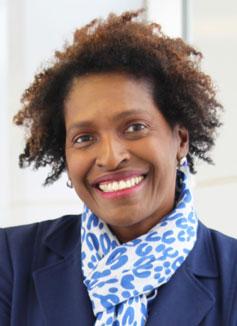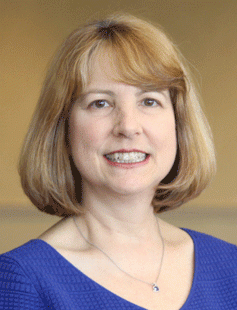CCTS Launches New Community Advisory Board

LEXINGTON, Ky. (June 8, 2022) – To address health needs of a community, health professionals and researchers first need meaningful relationships with the community. This is especially true when working with people who have been historically harmed, discriminated against, and neglected by healthcare and academic establishments—such as Black, Hispanic/Latine, and LGBTQIA+ groups.
To foster connections and trust with these communities across Kentucky, the UK Center for Clinical and Translational Science (CCTS) has launched a new Community Advisory Board, or CAB, to help meet the specific needs of people of color and LGBTQIA+ groups. A CAB is comprised of local community members—not researchers or health professionals—who are concerned about and committed to improving research and health promotion. They give input on health needs of their communities and how to best address those needs, ensuring that health or research projects are collaborative—not extractive or exploitive.
The newly established CAB builds upon the groundwork laid by the CCTS Community Champions Cabinet, which also serves as a channel to build relationships and invite feedback from the community.
“CABs are essential to building cohesive, bidirectional community engagement,” said Lovoria Williams, PhD, RN, FAAN, associate professor in the UK College of Nursing, who serves as lead of the CCTS CAB (CCAB) and director of the Center’s integrated special populations core. “They allow us to listen to communities, so that we’re working on what they identify as health priorities and so we don’t overburden specific sites with research projects.”
Gia Mudd-Martin, PhD, MPH, RN, FAHA, associate professor in the UK College of Nursing, serves as CCTS’ director of community engagement and co-lead of the CCAB. Together, Williams and Mudd-Martin bring decades of experience in community-engaged health research and promotion, and already have strong relationships with community members.
Hilda Okeyo, a PhD student in the UK College of Nursing, provides essential support for the CCAB; she recently prepared and presented a poster presentation about it at the CCTS and UNITE conferences.
The CCTS CAB, which held its first meeting in January 2022, consists of 12 community members who represent a diversity of organizations, ages, and genders. They were nominated by community leaders, pastors, and community-engagement researchers. CCAB members receive an honorarium of $50 per meeting (the chairperson receives $75). Half of the membership will rotate off in two years and nominate their replacements.
Serving as inaugural chairperson of the CCAB is Lafe Taylor, a local artist, entrepreneur, and business consultant who’s passionate about improving health for all, but especially Black communities. Taylor and Williams met when she was serving on the Lexington Mayor’s Racial Justice Commission; he was a regular and vocal attendee of the Commission meetings, speaking out for Black women’s health. He then reached out to Williams directly, inquiring about efforts to improve care and outcomes for this population.
“My wife is a Black woman and I have Black daughters, and I’ve seen experiences of family members, including my wife, not being able to find doctors we can trust. And I’ve read so many articles about Black women not being heard when they need health care,” Taylor said.
His personal experiences indeed reflect an inarguable, well-known fact: People of color do not receive the same level of care and do not experience the same health outcomes as their white peers. This is true across all realms of healthcare, from pain management to maternal child health to ER wait times to access to healthcare facilities or health insurance.
“When it comes to solving medical issues and making sure everyone has a fair shot—which is the whole purpose of the CAB—we need to identify what is broken and obsolete, and separate those things. The CAB is just a microcosm of the greater community so that these discussions are open for community feedback.”
Now an illustrator and business owner, Lafe was once a student and employee at UK, working as both a PT tech and a security guard. Later, in his tech days, he worked on a project examining hospital methodologies. When asked what he saw as urgent health priorities, he said that many system-level problems he witnessed in those experiences still haven’t changed.
“For example, it needs to be clearer to patients how they can access patient advocacy, how to get help, because a lot of times patients don’t know who to talk to if they feel like they’re not getting heard in the hospital,” he said. “This goes for any hospital administration—they always need more patient advocacy within their system and they need to make it transparent, more accessible.
And if hospitals aren’t paying to fix these things, they don’t really care. The issue goes back to staffing. Most hospital systems operate at minimum level, which is something the pandemic exposed—hospitals are already under capacity. They’re always understaffed. Period.”
In addition to Taylor, the CCTS CAB includes:
- Betty Abdmishani, an engaged community member with a long history of working on behalf of the Hispanic/Latine population to improve health
- Laverne Carter, retired from UK
- Yolanda Costner, a retired Community Connector and member of Alpha Kappa Alpha Sorority, Inc.
- Mark Johnson, a social worker, Community Connector, HIV advocate, and former employee of the Kentucky Department of Public Health and Lexington Fayette County Health Department
- LaVerne Laine, an outreach coordinator for the Lexington Housing Authority and member of the Black Church Coalition
- Sylvia LaRue, former employee for Child Protective Services and the Lexington Community Action Council
- Shanika Penman, an engaged community member
- Ruben Perez, employee of the Lexington-Fayette County Health Department
- Carolina Rodriguez, employee of Molina Healthcare
- Isabel Taylor, Multicultural Affairs Coordinator and Director of Global Lex in the Lexington Mayor’s Office
- Rolanda Woolfork, Georgetown Street Neighborhood Association board member
Together, this group of passionate community members will shape research efforts, provide guidance on community partnerships, and help evaluate CCTS progress on community outreach, research, and education initiatives.
“We hope the CCAB will become an invaluable resource for researchers across the university, where they can come and present their ideas for community-based projects. It is imperative that community members are kept abreast of CCTS research efforts, so we will require lay presentations to the CCAB for any CCTS pilot projects that will work with these populations,” Williams said.
Media Contact: Mallory Profeta, mallory.profeta@uky.edu



